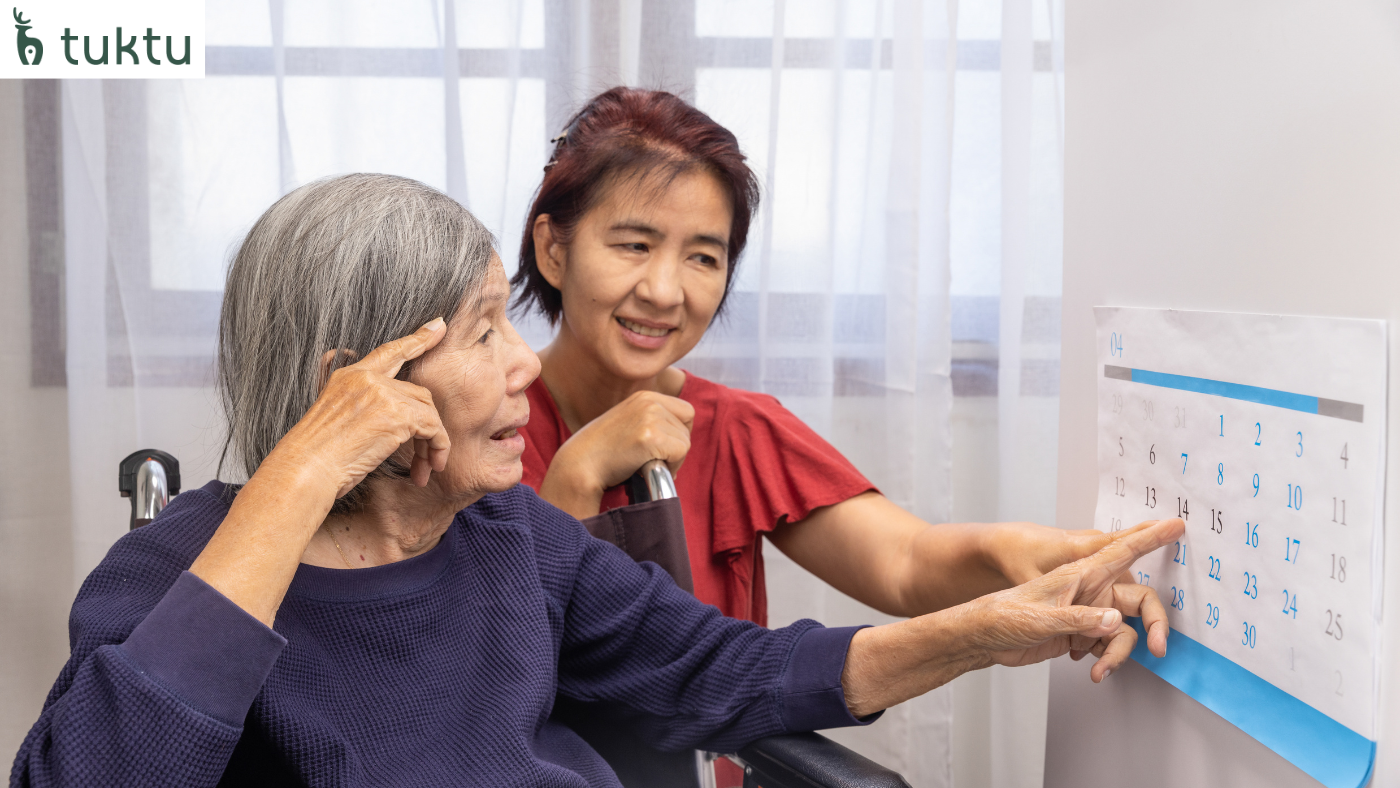When I first suspected that my mom might have dementia, the realization hit me hard. It was like a puzzle where pieces didn’t quite fit.
Mom, ever the independent spirit, brushed off her forgetfulness as nothing serious. However, my instinct wouldn’t allow me to let these concerns slide so easily.
Misplaced keys, forgotten conversations, and that distant look in her eyes during moments of confusion were signs I couldn’t ignore.
Navigating this delicate situation required a nuanced approach. The late-night research sessions became my routine, sifting through countless articles and resources on dementia.
I was compiling notes on symptoms, managing medical appointments, and jotting down everyday observations.
All these actions were aimed at understanding what we were up against, preparing me to handle the complexities of my mom’s condition with compassion and precision.
Planning the necessary conversations with my mom about her condition involved both strategy and empathy.
I learned quickly that early-stage discussions are crucial, not only for her understanding and acceptance but also for preparing ourselves for what lies ahead.
Here are three essential communications we initiated

1. Discussing the Diagnosis and Its Implications: The first conversation was perhaps the most challenging — discussing the potential diagnosis. It was important to approach this with sensitivity, ensuring mom didn’t feel accused or helpless.
I chose a moment when we both felt at ease, using simple, clear language to explain the symptoms I’d noticed and suggesting a visit to a neurologist to understand them better.
We discussed what the diagnosis could mean, emphasizing that understanding her condition was the first step in managing it effectively together.
2. Setting Expectations and Daily Management: Once we had a clearer picture from healthcare professionals, it was crucial to talk about practical adjustments we might need to consider. This included discussing how daily life might change and what support she was comfortable receiving.
We planned how to maintain her routine as much as possible, which helped in preserving a sense of normalcy and control.
This conversation also covered safety measures, like organizing the home to reduce risks and using technological aids to help remind her of daily tasks.
3. Future Care Planning: Knowing mom’s wishes regarding future care was essential. This conversation was approached with great care, ensuring it was clear that any decisions would be made with her input.
We talked about what types of assistance she might be open to in the future, from home modifications to potentially involving professional caregivers.
It was also a time to discuss her legal and financial preferences, which helped in making sure that her wishes would be respected, no matter the circumstances.
Each of these conversations was guided by mutual respect and the understanding that while the path ahead might be difficult, we would navigate it together.
These discussions not only helped in preparing practically but also strengthened our trust and connection, making it easier to handle the challenges dementia might bring.
Amid this, I discovered the value of a support network—both personal and professional. This journey, while personal, was not one to walk alone. I found comfort and guidance in support groups and in the stories of those who were on similar paths.
One particularly challenging day, when mom had misplaced her medication and became quite upset, illustrated the need for professional support. That’s when I reached out to Tuktu Care. Their reputation for compassionate dementia care came highly recommended.
With Tuktu, the support was immediate and practical. They provided us with an easy-to-use tool that helped track mom’s dementia progression, offering insights that were crucial in understanding her condition.
Tuktu also shared practical tips that became indispensable.
First, they advised creating a safe, clutter-free environment to minimize risks and confusion for my mom. Simple modifications to her home made a significant difference.
Next, the Tuktu helper emphasized and worked alongside in maintaining a routine, which helped mom feel more secure and less anxious as her memory faded.
Finally, they suggested using memory aids like labeled photos and clear, step-by-step lists for daily activities. These tools empowered mom to maintain some independence, which was important to her—and to me.
Perhaps the most impactful aspect of Tuktu’s involvement was how they facilitated personalized care. They connected us with a caregiver specialized in dementia care who didn’t just perform tasks but provided companionship. This caregiver was adept at engaging mom with activities tailored to her interests and abilities, bringing moments of joy and engagement into her days.
Through this journey, what has resonated most is the profound shifts in our relationship. Despite the challenges, we found moments of connection and understanding that might have otherwise been missed. Every small victory, like when mom remembered a family outing without prompting, felt monumental. These moments were not just sparks of her old self; they were reminders of the enduring bond between us.
In retrospect, the journey with my mom’s dementia has been as much about learning and adapting as it has been about caring and loving. With the resources and support from Tuktu, I’ve been equipped not only to manage the practical aspects of dementia care but also to navigate the emotional landscape that comes with it.
Their understanding of what families experience, mirrored in their service and support, has allowed us to face this challenge with dignity and hope.
For anyone walking this path, finding the right support can light the way forward. In our case, Tuktu has been that guiding light, helping us to adapt, understand, and connect more deeply, every step of the way.

